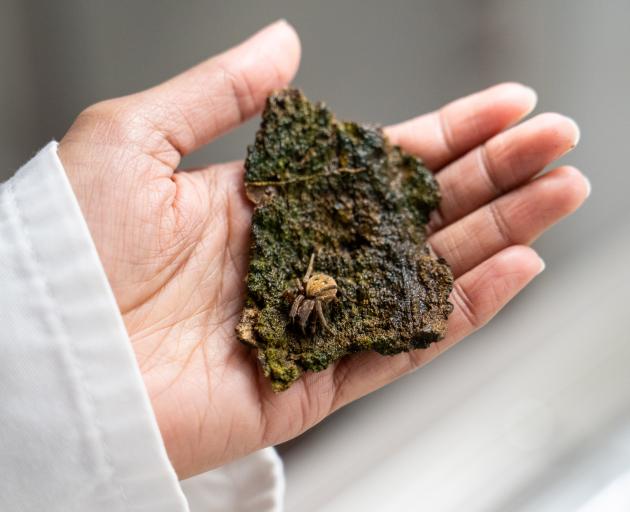Science
Parasitic Worms Transform Spiders into Mindless “Zombies”

A new study at Lincoln University reveals the unsettling impact of parasitic worms on local spider populations in New Zealand. PhD student Usha Mendis is investigating how these parasitic nematodes, known as mermithids, effectively turn spiders into mindless “zombies.” This phenomenon raises significant concerns about the health of the local ecosystem, given that over 90% of spiders in New Zealand are endemic.
Mendis has already identified three different spider species infected with these worms. The presence of mermithids poses a serious threat to biodiversity, as spiders play a crucial role in the food chain. “If something were to happen to them, it would not be good for our biodiversity,” Mendis stated. The parasitic takeover disrupts the spiders’ natural behaviors, leading to a cascade of ecological consequences.
The transformation process is slow and ultimately fatal for the spider. Infected specimens often exhibit abnormal physical changes, such as enlarged limbs and swollen abdomens. “They look like zombies,” Mendis remarked, highlighting the eerie nature of this transformation. Unfortunately, it can be difficult to detect whether a spider is infected until it succumbs to the parasite, at which point the nematode emerges to continue its lifecycle.
Understanding the lifecycle of mermithids is crucial for researchers. While it is known how the nematodes exit their host, the method by which they enter remains a mystery. Mendis is dedicated to uncovering this information, which is vital for addressing the ecological threat posed by these parasites.
The lifecycle of the nematodes relies heavily on moisture. They manipulate their spider hosts to seek out water, where the nematodes can grow, mate, and lay eggs. This often results in spiders being found drowned, as they venture into water sources in search of hydration. Even if the spider manages to survive the emergence of the nematodes, it is unlikely to live much longer.
To study this phenomenon further, Mendis is employing water traps to collect mermithids. The worms were first reported in New Zealand just 35 years ago, indicating that there is a pressing need for more research to fully understand their relationship with local spiders.
While mermithids present a significant ecological challenge, Mendis urges the public to reconsider their perception of spiders. “Spiders may look disruptive and creepy, but they’re not the enemy,” she said, emphasizing their vital role in maintaining ecological balance. As this research unfolds, the fate of New Zealand’s spiders—and the health of its ecosystems—hangs in the balance.
-

 World4 months ago
World4 months agoTest Your Knowledge: Take the Herald’s Afternoon Quiz Today
-

 Sports4 months ago
Sports4 months agoPM Faces Backlash from Fans During Netball Trophy Ceremony
-

 Lifestyle4 months ago
Lifestyle4 months agoDunedin Designers Win Top Award at Hokonui Fashion Event
-

 Entertainment4 months ago
Entertainment4 months agoExperience the Excitement of ‘Chief of War’ in Oʻahu
-

 Sports4 months ago
Sports4 months agoLiam Lawson Launches New Era for Racing Bulls with Strong Start
-

 World5 months ago
World5 months agoCoalition Forms to Preserve Māori Wards in Hawke’s Bay
-

 Health4 months ago
Health4 months agoWalking Faster Offers Major Health Benefits for Older Adults
-

 Lifestyle4 months ago
Lifestyle4 months agoDisney Fan Reveals Dress Code Tips for Park Visitors
-

 Politics4 months ago
Politics4 months agoScots Rally with Humor and Music to Protest Trump’s Visit
-

 Top Stories5 months ago
Top Stories5 months agoUK and India Finalize Trade Deal to Boost Economic Ties
-

 Health2 months ago
Health2 months agoRadio Host Jay-Jay Feeney’s Partner Secures Visa to Stay in NZ
-

 World5 months ago
World5 months agoHuntly Begins Water Pipe Flushing to Resolve Brown Water Issue









